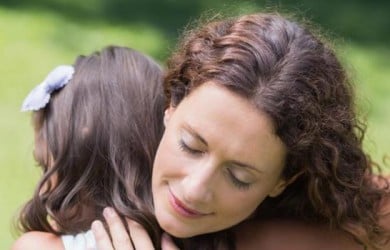10 Psychological Effects of Being a Single Mother

Unlock Daily 30-Sec Tips for a Happier Relationship
👉 Subscribe FREEKey Takeaways
Marriage.com AI Quick Summary
Being a mom is a big job, and doing it on your own is even harder. Single moms face unique challenges that can affect how they feel and think.
Some of these feelings can be really positive, like a strong sense of pride and a close bond with their kids. But there can also be tough times that bring stress or worry.
Know about some psychological effects of being a single mother. If being a single mother makes you depressed and angry, we hope this will help single moms feel less alone and give everyone a better understanding of what it’s like.
The single mother experience: Challenges and realities
Being a single mother is a role filled with both triumphs and trials. From the joy of unconditional love to the stress of balancing work and childcare, the experience is a mix of highs and lows.
Know the challenges of a single mother and the realities that single mothers face daily, with the hope of developing understanding and support for these resilient women.
Challenges
There are some challenges that single mothers face, which can lead to the psychological effects of being a single mother. Here are some of them:
-
Financial strain
One of the most pressing struggles of single moms is financial stability. Single moms often bear the burden of being the sole breadwinner while also managing household expenses and childcare costs. This can be extremely difficult to handle.
-
Time management
Balancing a career, household chores, and spending quality time with the kids is no small feat. While being a single mother, time management might not always be possible. The struggle to manage time effectively can often lead to stress and exhaustion.
-
Emotional toll
One of the single mom problems is that the absence of a partner can intensify feelings of loneliness and emotional exhaustion. Single mothers frequently juggle the roles of both parents, which can be emotionally draining.
-
Limited support network
Without a co-parent, the responsibility of childcare and emergency situations falls entirely on the single mom. This can make it challenging to maintain a social life and get to know more people or even have time for self-care.
-
Societal stigma
Despite strides towards equality, societal attitudes often still hold single moms to a different standard, resulting in unfair judgment or criticism. No matter how successful a single mom could be, there are chances she will face the bias.
Realities
Being a single mother might be something that is often clouded by misconceptions and stereotypes. But here are some realities that can help you understand the circumstance better:
-
Stronger bond with children
On the flip side, many single mothers share a unique and unbreakable bond with their children, developed through shared experiences and challenges. Being the closest family to the child, the child remains attached to the mom.
-
Personal growth
Facing difficulties head-on builds resilience and a strong sense of independence. Given the difficult situations they handle alone, many single moms find that they discover inner strengths they didn’t know they had.
-
Community support
While it may be challenging, many single moms find a supportive community of friends and family who step in to help. There are also online communities and organizations dedicated to assisting single parents.
-
Adaptability
The experience teaches invaluable skills in adaptability, strength, and problem-solving. Dealing with various challenges alone helps single moms become stronger and an expert at handling unexpected situations.
-
Love and fulfillment
Despite the hardships, the love between a mother and her child is incomparable. The joys and milestones often outweigh the difficulties, providing a sense of fulfillment that is indescribable. The bond remains indescribable.
10 psychological effects of being a single mother
Single motherhood can have a significant psychological impact on women due to the unique challenges and stressors they often face. Here are 10 potential psychological effects of being a single mother:
1. Stress and anxiety
Single mothers often find themselves responsible for a wide range of tasks, from parenting to household management to work obligations.
The cumulative weight of these responsibilities can lead to chronic stress and anxiety. The fear of not being able to fulfill all these roles effectively can create a constant sense of pressure and worry.
2. Depression
The isolation and societal pressures that single mothers face can make them more susceptible to depression in single moms.
Social activities might take a backseat due to the demands of parenting and work, leading to feelings of loneliness and a lack of emotional support. Additionally, financial strain can exacerbate feelings of hopelessness and contribute to depressive symptoms.
3. Guilt and self-blame
Single mothers often feel guilty for not being able to provide their children with everything they need.
This guilt might stem from the inability to spend as much time as desired with their children due to work commitments, financial limitations, or the need to manage multiple responsibilities. This self-blame can take a toll on self-esteem and overall well-being.
4. Loneliness and isolation
Single mothers can experience a sense of isolation due to a lack of time and energy for social activities.
The absence of a partner to share the responsibilities of parenting and household chores can lead to feelings of loneliness. Limited social interactions may result in a reduced support system, which is crucial for emotional well-being.
5. Self-care neglect
The constant demands of caring for children, managing a household, and potentially working a full-time job can leave little time for self-care.
Single mothers might prioritize the needs of their children over their own well-being, neglecting activities that provide relaxation and personal fulfillment. This can lead to exhaustion and a decline in self-esteem.
6. Financial stress
Financial concerns are often magnified for single mothers who bear the sole responsibility for providing for their families.
The pressure to provide basic necessities, education, and a comfortable life can be overwhelming. Financial stress can contribute to heightened anxiety and a constant state of worry about the future.
7. Emotional burnout
Single mothers often become emotional pillars for their children, providing comfort and support during challenging times.
The emotional labor can take a toll, leaving single mothers emotionally drained. Balancing their own emotional needs with those of their children can be challenging, leading to burnout and emotional exhaustion.
8. Impact on parenting style
The stressors of single motherhood can influence parenting dynamics. Fatigue and overwhelm might lead to inconsistent discipline or even moments of impatience. Balancing work, parenting, and personal needs can become a delicate juggling act, and any perceived shortcomings in parenting can trigger feelings of guilt or frustration.
9. Impact on relationships
Single mothers often have limited time and energy to invest in new relationships or maintain existing ones.
Romantic relationships might take a backseat as they prioritize their children’s needs and daily responsibilities. This can result in challenges when it comes to forming new connections or sustaining friendships.
10. Loss of identity
A single mother’s role can become all-encompassing, leaving little room for personal pursuits and interests. As a result, some single mothers might struggle with maintaining a sense of self beyond their role as a parent.
This loss of personal identity can lead to a decreased sense of fulfillment and self-worth.
5 effects on parent-child relationships
The role of being a single mother can have various effects on the parent-child relationship due to the unique challenges and circumstances involved. Here are some key effects:
1. Close emotional bonds
In many single mother households, due to the absence of another parent, the mother often develops a strong emotional bond with her children. This can lead to close relationships characterized by open communication, trust, and emotional support.
Children may feel comfortable sharing their thoughts and feelings with their single mother, fostering a deep connection.
2. Increased responsibility
Single mothers often take on multiple roles within the household, including being the primary caregiver, breadwinner, and decision-maker. This can lead to children developing a sense of responsibility at a young age, as they may need to help with chores, take care of younger siblings, or contribute to the household in various ways.
3. Supportive peer relationships
Single-mother households can sometimes foster closer relationships among siblings. With fewer adults in the household, siblings might rely on each other more for companionship, problem-solving, and emotional support. These relationships can be valuable sources of encouragement and understanding.
4. Strong female role models
In single mother households, the mother often becomes a prominent role model for her children, especially her daughters. This can empower young girls to view women as capable leaders and providers, challenging traditional gender roles and promoting independence and resilience.
5. Financial and time constraints
Single mothers often face financial and time constraints due to their multiple responsibilities. While these constraints can encourage children to become self-reliant and resourceful, they can also lead to stress and limited quality time for parent-child interactions.
Balancing work, household tasks, and childcare can impact the amount of time available for nurturing relationships.
Check out this video where Liz Carlile discusses how self-care should be of utmost priority for moms:
What happens to children’s psychological well-being in single parent households?
Children’s psychological well-being in single-parent households can be influenced by various factors. Positive parent-child relationships, open communication, and emotional support contribute to resilience.
However, the psychological effects of being a single mother, financial stress, limited time with the single parent, and potential role confusion might impact emotional health. Providing a stable and nurturing environment, access to social support, and opportunities for self-expression can mitigate potential negative effects.
Overall, children’s well-being depends on a combination of a secure attachment with the single parent, a strong support network, and strategies to address any challenges that arise.
How to build resilience in single parent households
Building resilience in single-parent households involves encouraging open communication, teaching coping skills, and promoting a positive self-image.
Encouraging problem-solving, adaptability, and emotional regulation helps children overcome challenges. Engaging in quality time and maintaining routines enhance stability.
Additionally, since the psychological effects of being a single mother are immense, seeking help from support networks, such as friends, family, or community resources, bolsters both parent and child well-being. Professional counseling offers a safe space to address complex emotions.
By cultivating resilience and accessing support, single parents and their children can better overcome difficulties, promote mental health, and develop skills to thrive despite the unique circumstances they face.
What are some success stories or role models for single parents?
Success stories and role models within the realm of single parenting offer inspiration and guidance for those facing similar challenges.
-
Oprah Winfrey
A prominent example, Oprah grew up in a single-parent household and overcame adversity to become a media mogul, demonstrating the potential for success despite early hardships.
-
J.K. Rowling
The author of the Harry Potter series was a single mother on welfare when she began writing her iconic novels. Her journey from struggle to worldwide success serves as a testament to determination and creativity.
-
Barack Obama
Before becoming the President of the United States, Obama was raised by his single mother. Her dedication to his education and values played a pivotal role in his eventual achievements.
-
Halle Berry
The acclaimed actress faced challenges as a single mother before establishing herself in Hollywood. Her accomplishments inspire others to pursue their dreams despite obstacles.
-
Sonia Sotomayor
The Supreme Court Justice’s mother raised her as a single parent after her father passed away. Her accomplishments demonstrate the potential for success through determination and hard work.
Commonly asked questions
Explore essential FAQs on single parenting’s impact on children’s mental health, psychological effects of being a single mother, strategies for coping with loneliness, self-care tips, government support, and career implications.
-
Can single parenting affect a child’s mental health?
Yes, single parenting can influence a child’s mental health. Factors like limited emotional support, financial stress, and potential role confusion may impact a child’s emotional well-being.
However, strong parent-child relationships, open communication, and access to support networks can mitigate negative effects and promote resilience.
-
How do single mothers cope with loneliness?
Single mothers can cope with loneliness by actively seeking social connections through friends, support groups, or community activities.
Engaging in hobbies, practicing self-care, and maintaining a support network help combat isolation. Online platforms can provide virtual communities for single mothers to share experiences and find companionship.
-
What are some effective self-care strategies for single mothers?
Effective self-care strategies for single mothers include setting boundaries, prioritizing time for themselves, engaging in activities they enjoy, seeking occasional childcare, practicing mindfulness, staying physically active, and seeking professional help when needed.
-
Are there any government programs to assist single mothers with their mental health?
Many countries offer government programs and resources to support single mothers’ mental health. These can include subsidized counseling services, mental health hotlines, and access to community mental health centers.
Research local government websites or community organizations for specific resources available in your area.
-
What impact does single motherhood have on career advancement?
Single motherhood can present challenges to career advancement due to the demands of parenting and potentially limited availability for work-related responsibilities. Juggling work and childcare responsibilities may affect job opportunities and the ability to pursue further education or training.
However, support networks, flexible work arrangements, and seeking out family-friendly employers can help mitigate these challenges.
In a nutshell
By recognizing potential impacts on children’s mental health, implementing effective coping strategies, embracing self-care practices, and utilizing available government support programs, single mothers can develop resilience for themselves and their children.
Additionally, understanding the potential psychological effects of being a single mother allows for proactive planning and seeking out supportive work environments.
Through shared success stories and the power of community, single parents and their children can thrive despite challenges, carving out a path towards emotional well-being, personal growth, and a brighter future.
 Tips
Tips
Write your tip or submit a video tip
All tips are reviewed before the publishing.
Share this article on
Want to have a happier, healthier marriage?
If you feel disconnected or frustrated about the state of your marriage but want to avoid separation and/or divorce, the marriage.com course meant for married couples is an excellent resource to help you overcome the most challenging aspects of being married.
Recent Articles
Related Quizzes
Unlock Daily 30-Sec Tips for a Happier, Healthier Relationship
👉 Subscribe FREE on YouTube We'd love your feedback!
We'd love your feedback!
 Expert Q&A
Expert Q&A
Ask your question related to this topic & get the support you deserve from experts.



















 Thanks for your feedback!
Thanks for your feedback!